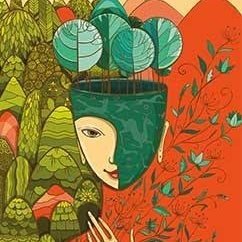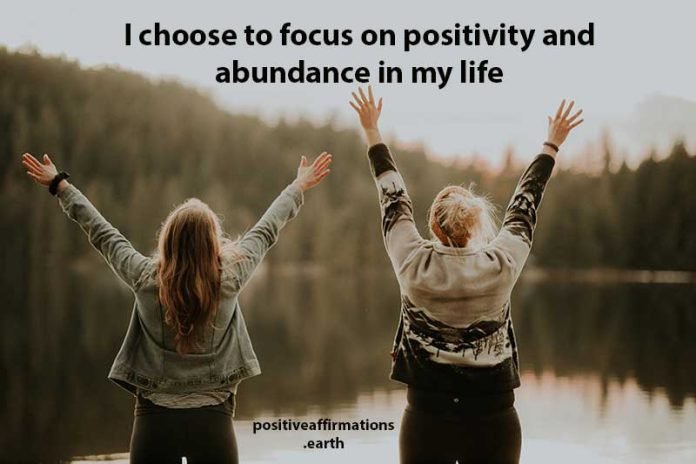Introduction
Anxiety is a natural response to stress that everyone experiences from time to time. It is a feeling of unease, such as worry or fear, which can be mild or severe. When anxiety becomes excessive or persistent, it can have negative impacts on an individual’s life and relationships. In this essay, we will define anxiety and explore its negative impacts on individuals and their relationships with others. We will also discuss strategies and techniques that someone can use to deal with anxiety in their life, the role of meditation and mindfulness, the professionals someone experiencing anxiety should consult with, the role of diet and exercise in alleviating anxiety, the importance of good sleep hygiene, and the role of alternative therapies such as aromatherapy, tai chi, yoga, and homeopathy in helping with anxiety.
Defining Anxiety
Anxiety is a feeling of unease, such as worry or fear, which can be mild or severe. (“Anxiety | NHS inform”) It is a natural response to stress that everyone experiences from time to time. Anxiety becomes a problem when it becomes excessive or persistent. Anxiety disorders are the most common mental health disorders in the United States, affecting around forty million adults. Types of anxiety disorders include generalized anxiety disorder (GAD), panic disorder, social anxiety disorder, and specific phobias.
Negative Impacts of Anxiety on Individuals and Their Relationships with Others
Anxiety can have negative impacts on an individual’s life and relationships with others. Individuals with anxiety may experience physical symptoms such as increased heart rate, sweating, and trembling. They may also experience psychological symptoms such as worry, fear, and irritability. These symptoms can affect an individual’s ability to function in their daily life, including work, school, and social activities.
Anxiety can also have negative impacts on an individual’s relationships with others. Individuals with anxiety may avoid social situations, leading to isolation and loneliness. They may also have difficulty communicating with others, leading to misunderstandings and conflicts. Anxiety can also affect an individual’s ability to maintain close relationships, leading to feelings of loneliness and low self-esteem.
Strategies and Techniques for Dealing with Anxiety
There are strategies and techniques that someone can use to deal with anxiety in their life. These include:
- Cognitive-behavioral therapy (CBT): CBT is a type of talk therapy that helps individuals change negative thought patterns and behaviors. It is an effective treatment for anxiety disorders.
- Medication: Anti-anxiety medications, such as benzodiazepines and antidepressants, can be effective in treating anxiety disorders. However, they should be used under the supervision of a healthcare provider.
- Relaxation techniques: Relaxation techniques such as deep breathing, progressive muscle relaxation, and visualization can help reduce anxiety symptoms.
- Exercise: Regular exercise can help reduce anxiety symptoms by releasing endorphins, improving sleep, and reducing muscle tension. (“Best Herbal Tea Recipe for Anxiety and Stress Relief”)
- Mindfulness: Mindfulness involves focusing on the present moment and accepting it without judgment. It can be practiced through meditation, yoga, or other mindfulness exercises.
- Self-care: Self-care activities such as getting enough sleep, eating a healthy diet, and engaging in enjoyable activities can help reduce anxiety symptoms.
Role of Meditation and Mindfulness
Meditation and mindfulness can be effective techniques for reducing anxiety. Meditation involves focusing the mind on a particular object, thought, or activity to achieve a mentally clear and emotionally calm state. Mindfulness involves paying attention to the present moment without judgment. Studies have shown that meditation and mindfulness can help reduce anxiety symptoms by promoting relaxation, reducing stress, and improving mood.
Professionals to Consult with for Anxiety
Individuals experiencing anxiety should consult with a healthcare provider, such as a primary care physician or mental health professional. Mental health professionals who specialize in treating anxiety disorders include psychologists, psychiatrists, and licensed clinical social workers. A healthcare provider can help diagnose anxiety and develop a treatment plan that may include therapy, medication, or a combination of both.
Role of Diet and Exercise
Diet and exercise can play a role in alleviating anxiety symptoms. Eating a healthy, balanced diet that includes whole grains, fruits, vegetables, lean protein, and healthy fats can help reduce anxiety symptoms. (“The Truth About Menopause and Belly Fat: What Women Need to Know”) Regular exercise can also help reduce anxiety symptoms by releasing endorphins, improving sleep, and reducing muscle tension. However, it is important to note that diet and exercise alone may not be sufficient to treat anxiety disorders and should be used in conjunction with other treatments, such as therapy or medication.
Importance of Good Sleep Hygiene
Good sleep hygiene is important for individuals experiencing anxiety. Anxiety can cause difficulty falling asleep, staying asleep, or both. Poor sleep can worsen anxiety symptoms and lead to a cycle of anxiety and poor sleep. Good sleep hygiene includes practices such as maintaining a regular sleep schedule, creating a relaxing bedtime routine, and avoiding caffeine and alcohol before bedtime.
Role of Alternative Therapies
Alternative therapies such as aromatherapy, tai chi, yoga, and homeopathy can be helpful in reducing anxiety symptoms. Aromatherapy involves using essential oils to promote relaxation and reduce stress. Tai chi and yoga are mind-body practices that can help reduce anxiety symptoms by promoting relaxation and mindfulness. Homeopathy involves using highly diluted substances to stimulate the body’s natural healing process. However, it is important to note that the effectiveness of these therapies for anxiety disorders is not well-established and should be used in conjunction with other treatments.
Conclusion
Anxiety is a natural response to stress that everyone experiences from time to time. When anxiety becomes excessive or persistent, it can have negative impacts on an individual’s life and relationships. There are strategies and techniques that someone can use to deal with anxiety in their life, including cognitive-behavioral therapy, medication, relaxation techniques, exercise, mindfulness, and self-care. Consulting with a healthcare provider, maintaining good sleep hygiene, and incorporating alternative therapies such as aromatherapy, tai chi, yoga, and homeopathy can also be helpful in reducing anxiety symptoms. It is important to note that each person’s experience with anxiety is unique, and treatment should be tailored to the individual’s needs.
Twenty positive affirmations that can help someone deal with anxiety:
- I am in control of my thoughts and emotions.
- I trust in my ability to manage any challenge that comes my way.
- I am calm and centered in the face of stress and uncertainty.
- I release all worry and embrace peace and serenity.
- I am worthy of love, respect, and happiness.
- I can achieve my goals and dreams.
- I choose to focus on the present moment and let go of past regrets and future worries.
- I am grateful for all the blessings in my life, big and small.
- I trust in the journey of my life and have faith that everything happens for a reason.
- I am strong and resilient, and I can overcome any obstacle.
- I am surrounded by love and support from my friends, family, and community.
- I am worthy of self-care and taking time to prioritize my well-being.
- I embrace change and growth as an opportunity for personal development.
- I let go of perfectionism and accept myself for who I am.
- I am confident in my abilities and trust in my decisions.
- I deserve to enjoy life and have fun.
- I am at peace with myself and my surroundings.
- I choose to focus on positivity and abundance in my life.
- I am grateful for every experience, good or bad, that has shaped who I am today.
- I am loved and appreciated just the way I am.
Sources:
- National Institute of Mental Health. (2021). Anxiety Disorders. https://www.nimh.nih.gov/health/topics/anxiety-disorders/index.shtml
- Mayo Clinic. (2021). Anxiety Disorders. https://www.mayoclinic.org/diseases-conditions/anxiety/symptoms-causes/syc-20350961
- American Psychological Association. (2017). Understanding Anxiety Disorders. https://www.apa.org/topics/anxiety
- Harvard Health Publishing. (2018). Six ways to stop anxiety and panic attacks. https://www.health.harvard.edu/mind-and-mood/6-ways-to-stop-anxiety-and-panic-attacks
- National Center for Complementary and Integrative Health. (2021). Relaxation Techniques for Health. https://www.nccih.nih.gov/health/relaxation-techniques-for-health
- Harvard Health Publishing. (2019). Exercise is an all-natural treatment to fight depression. https://www.health.harvard.edu/mind-and-mood/exercise-is-an-all-natural-treatment-to-fight-depression
- Harvard Health Publishing. (2018). Mindfulness meditation may ease anxiety, mental stress. https://www.health.harvard.edu/blog/mindfulness-meditation-may-ease-anxiety-mental-stress-201401086967
- National Sleep Foundation. (2021). Sleep Hygiene. https://
- American Sleep Association. (2021). Sleep Hygiene. https://www.sleepassociation.org/about-sleep/sleep-hygiene-tips/
- Mayo Clinic. (2021). Alternative medicine. https://www.mayoclinic.org/healthy-lifestyle/consumer-health/in-depth/alternative-medicine/art-20045267
- National Center for Complementary and Integrative Health. (2021). Aromatherapy. https://www.nccih.nih.gov/health/aromatherapy
- Harvard Health Publishing. (2021). Yoga for Anxiety and Depression. https://www.health.harvard.edu/mind-and-mood/yoga-for-anxiety-and-depression
- National Center for Complementary and Integrative Health. (2021). Tai Chi: In Depth. https://www.nccih.nih.gov/health/tai-chi-in-depth
- American Homeopathy Association. (2021). What is Homeopathy? https://www.homeopathycenter.org/what-is-homeopathy
- Anxiety and Depression Association of America. (2021). Find a Therapist. https://adaa.org/finding-help/treatment/finding-therapist
- National Alliance on Mental Illness. (2021). Medications. https://www.nami.org/About-Mental-Illness/Treatments/Mental-Health-Medications
- National Institute of Mental Health. (2021). Psychotherapies. https://www.nimh.nih.gov/health/topics/psychotherapies/index.shtml
- Substance Abuse and Mental Health Services Administration. (2019). National Helpline. https://www.samhsa.gov/find-help/national-helpline
- American Psychological Association. (2021). Psychology Help Center. https://www.apa.org/helpcenter
- Centers for Disease Control and Prevention. (2020). Coping with Stress. https://www.cdc.gov/coronavirus/2019-ncov/daily-life-coping/managing-stress-anxiety.html
- World Health Organization. (2021). Mental Health. https://www.who.int/health-topics/mental-health#tab=tab_1
- Anxiety and Depression Association of America. (2021). Exercise for Stress and Anxiety. https://adaa.org/understanding-anxiety/related-illnesses/other-related-conditions/stress/physical-activity-reduces-st
- National Institute of Mental Health. (2021). Helping Children and Adolescents Cope with Disasters and Other Traumatic Events: What Parents, Rescue Workers, and the Community Can Do. https://www.nimh.nih.gov/health/publications/helping-children-and-adolescents-cope-with-disasters-and-other-traumatic-events/index.shtml
- Harvard Health Publishing. (2021). Can Herbal Supplements Help Ease Anxiety? https://www.health.harvard.edu/mind-and-mood/can-herbal-supplements-help-ease-anxiety
- American Psychiatric Association. (2017). Practice Guideline for the Treatment of Patients with Anxiety Disorders. https://psychiatryonline.org/pb/assets/raw/sitewide/practice_guidelines/guidelines/anxiety.pdf



